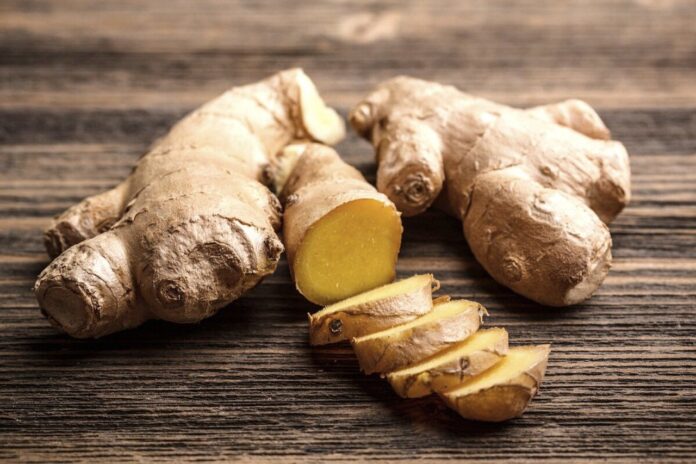Ginger is a common dietary ingredient that is famous in all parts of the world. But fewer people know about the medicinal potential of ginger which is mainly due to its high antioxidant and anti-inflammatory value. A new study by a research team at Michigan Medicine explored the effects of ginger on lupus disease symptoms. They specifically searched how 6-gingerol, an active ingredient inside ginger plays a part in relieving these symptoms. The complete study findings are published in the journal JCI Insight.
Lupus is a chronic disease where the body’s immune system fails to recognize itself and causes an inflammatory action. This inflammation can affect visceral body organs and start a self-destruction mode. The study was aimed to test the anti-inflammatory response of ginger against the immune system’s hyperactivity and possibly shortlist the compound/compounds responsible for it. The main focus of the research team was on 6-gingerol which is proven for anti-inflammatory relief in previous studies.
Also read- American Doctor is Treating COVID-19 Patients with a Common Head Lice Medicine
They experimented on mice having antiphospholipid syndrome (APS). It is another autoimmune condition that is many times linked with lupus disease symptoms. In APS, the body starts making blood clots inside the blood vessels causing a hindrance in blood transportation. The research team was astonished to see that the 6-gingerol successfully stopped the neutrophil extracellular traps (NETs) formation which are typically produced during an interaction between the neutrophil receptor and autoantibodies.
If not stopped, NETs lead to the production and release of blood clots which is one of many symptoms of lupus disease. In addition to that, 6-gingerol also prevented the release of neutrophil enzymes called phosphodiesterases which are directly related to the activation of neutrophils.
The results of this study reveal that the anti-inflammatory action of ginger can also help against autoantibodies which are produced in APS and lupus disease. Irrespective of these lab mice’s existing condition, whether it was lupus or APS, both of them experienced a controlled autoantibodies production. It means that ginger has the potential of saving from this chronic inflammation and treat chronic lupus disease symptoms.
This is the first-ever study on ginger revealing it may be an effective herbal treatment for lupus disease patients. Alternatively, the 6-gingerol from ginger can be added to certain medicines to improve their efficacy and use in the existing treatment plans to control neutrophil hyperactivity.
Also read- Your Fitness Level Can Determine the Risk of Psoriasis in Later years
Although these results are only observed in rodents, there are strong reasons to test them in humans. If only the same results are achieved from human trials, the chances to finally find an effective lupus treatment are highest. Using ginger in diet or ginger supplement may save people from these blood clot formation and other lupus disease symptoms.
The research team wants to study the effects of 6-gingerol in detail particularly in people who have lupus or any other condition which involves the formation of blood clots. The next stage of this experiment is human trials and without these trials, it is not suggested to start suggesting ginger supplements to lupus patients at this moment. It seems like we have to wait to finally know the dosage, method, and safety levels with ginger supplements for lupus patients.




